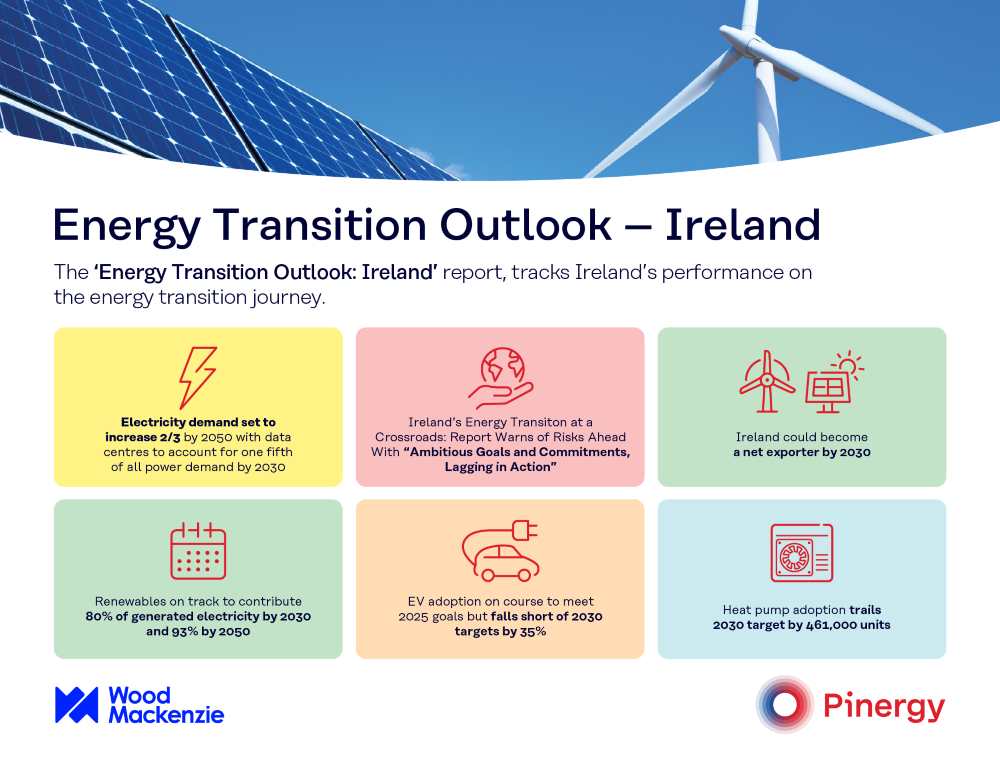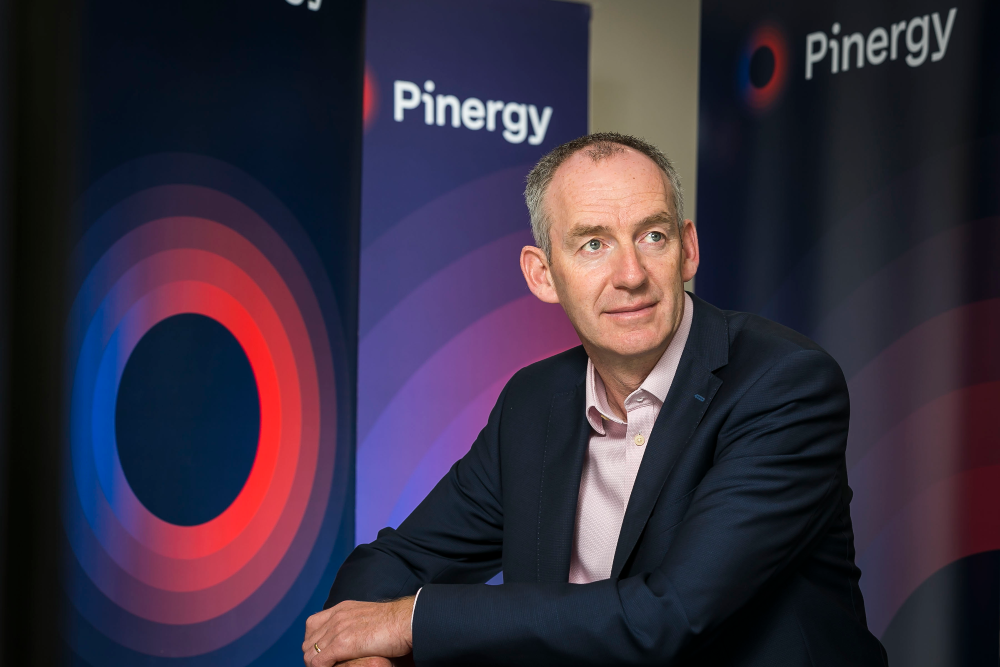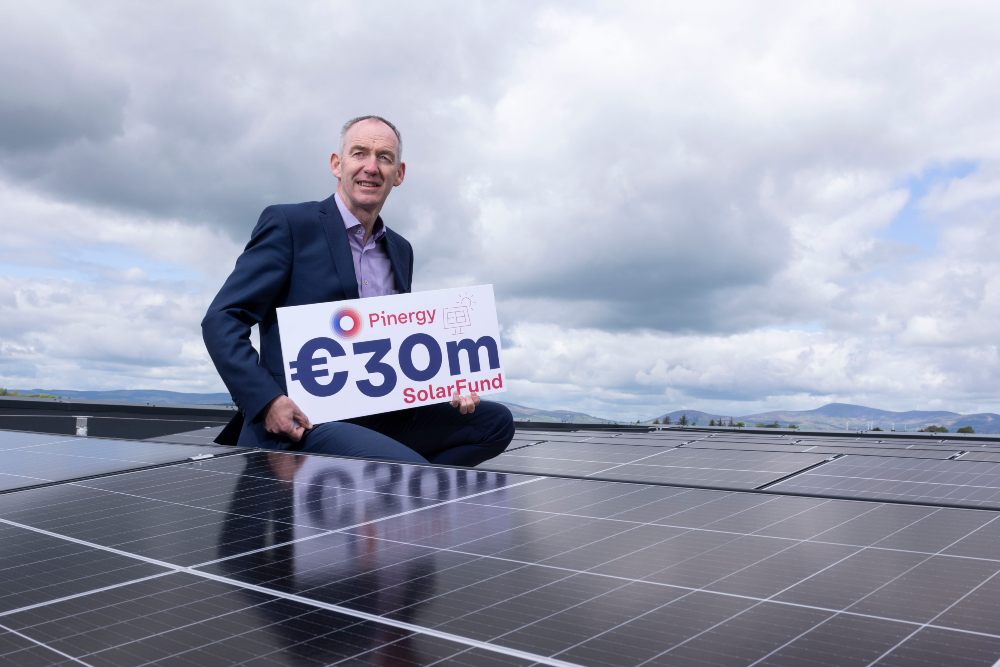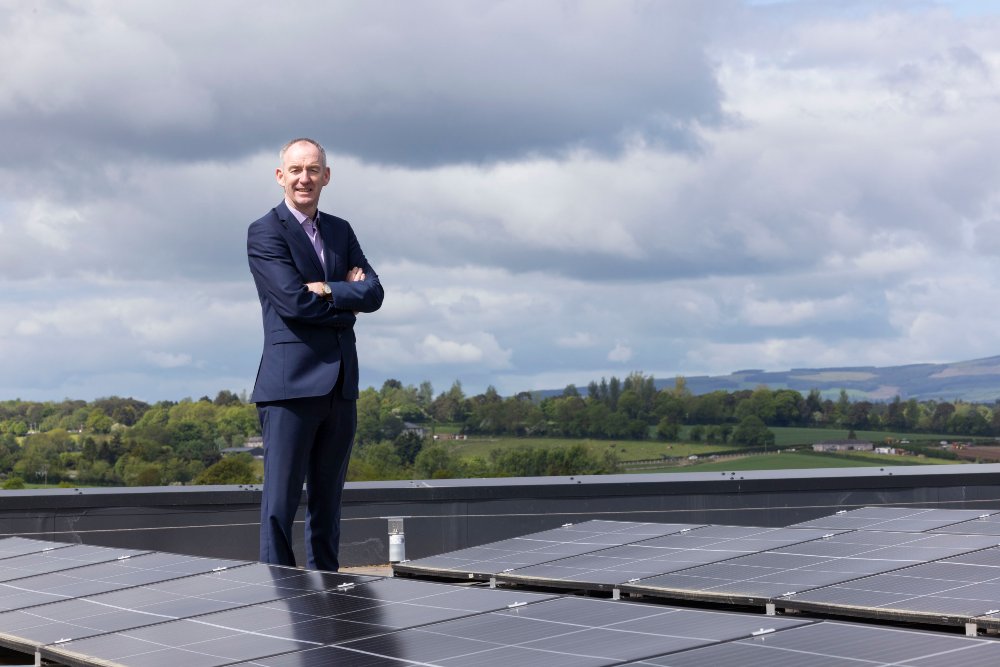Ireland’s electricity demand set to accelerate by two-thirds by 2050 as energy transition picks up speed.
Ireland’s electricity demand is projected to grow by two-thirds by 2050, with on-grid power generation set to double during the same period, according to a new report by Pinergy in collaboration with Wood Mackenzie.
The ‘Energy Transition Outlook: Ireland’ report reveals that data centres will account for more than one-fifth of all power demand by 2030, driven by artificial intelligence requirements.
“We’ve set ambitious goals and commitments, but this report makes it clear we must move from aspiration to urgent, tangible action. The time for deliberation is over”
However, the analysis warns that current progress remains insufficient to meet key energy targets.
Ireland’s energy transition is at a crossroads
“Ireland’s energy transition is at a crossroads and we must invest in our future,” said Enda Gunnell, CEO at Pinergy. “We’ve set ambitious goals and commitments, but this report makes it clear we must move from aspiration to urgent, tangible action. The time for deliberation is over.”
Gunnell welcomed the planned €3.5bn investment announced in the revised National Development Plan for Ireland’s electricity grid infrastructure, calling the funding “critical in order to make the necessary infrastructure investments now required.”
The report forecasts that renewables will contribute 80% of generated electricity by 2030, climbing to 93% by 2050, with wind power alone accounting for 77%. This progress will be enabled by a forecasted 56% increase in onshore wind supply and a 166% rise in solar power supply compared to current levels.
Ireland is expected to move from 20th place for renewables in electricity among advanced economies to 11th place overall by 2030. Denmark leads the rankings, achieving 100% renewables by 2030 through aggressive climate strategy and greater investment in renewables.
However, offshore wind projects face significant delays. Ireland is projected to fall 4GW short of its 5GW offshore wind target by 2030 as projects suffer delays and cancellations.
While electric vehicle adoption is on course to meet 2025 goals, Ireland is falling short of 2030 EV targets by 35%. The report predicts the country needs to accelerate its adoption rate by 54% to meet targets.
Heat pump adoption presents an even greater challenge, trailing 2030 targets by 68%, equivalent to 461,000 units behind schedule.
Grid infrastructure critical to success
“A modern, agile electricity grid is the very foundation of a successful energy transition,” Gunnell added. “Without a robust and adaptable grid, Ireland cannot grow its economy and effectively integrate the increasing volumes of renewable energy that will power the country’s future.”
He noted that Ireland’s energy grid is aging and requires significant resources and urgent investment to meet the demands of the energy transition.
“This decade is pivotal to the energy transition and results rather than ambition alone will be the measure of success,” said Lindsey Entwistle, senior analyst at Wood Mackenzie. “Globally, geopolitical turmoil is creating headwinds for the energy transition. Costs have risen and uncertainty has increased across energy supply chains.”
Data centres drive short-term demand
Data centres are projected to consume 8.6 TWh of electricity from the grid by 2030, equivalent to powering two million homes. This consumption places significant strain on the grid, though the share of total power demand for data centres is expected to fall to 16% by 2050 as grid capacity increases and electrification of heat and transport intensifies.
The report identifies a potential opportunity for Ireland to become a net exporter of electricity by 2030, assuming successful offshore wind delivery and planned new interconnectors are completed.
To address current shortfalls, the report recommends accelerated grid infrastructure upgrades and energy storage deployment, increased renewable energy deployment, enhanced support for EVs and heat pumps, and scaling up energy storage to 4.7 GW by 2030.
“A successful energy transition will not only reduce our carbon emissions and protect our environment, but it will also create new jobs, boost our economy, and enhance our energy security,” Gunnell concluded.
-
Bank of Ireland is welcoming new customers every day – funding investments, working capital and expansions across multiple sectors. To learn more, click here
-
For support in challenging times, click here
-
Listen to the ThinkBusiness Podcast for business insights and inspiration. All episodes are here. You can also listen to the Podcast on:
-
Spotify
-
SoundCloud
-
Apple






